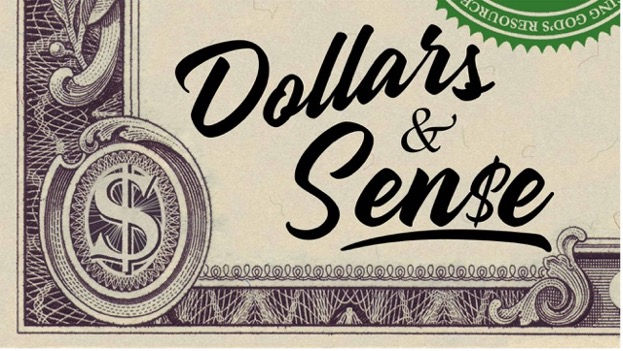Dollars & Sense: The comps given in Line-Dancing
- Jul 16, 2022
- 4 min read
Updated: Aug 10, 2022

When planning soul line-dancing events, inviting instructors isn’t as simple as extending an invitation. A decision on instructor compensation must be considered (some instructors request compensation for their time and effort). The consideration of compensation is a multi-layered discussion and many event organizers deal with this request several ways.
Not all soul line-dancing choreographers and instructors ask for compensation, however, for the ones that do, the requests vary widely (from partial or free entry to an event, to flight, hotel, rental car, free entry, food, a donation, and a percentage of the ticket fees).
To be fair, there is no harm in asking to be compensated. Anyone can at least ask. The agreeability depends on the event organizer/group, and their budget. The issue becomes what would be fair compensation for the instructors?
Dance industry average compensation:
Overall, on average US-based professional dancers can expect to earn about $24.50 an hour. However, this statistic begins to change drastically once you consider different types of dancers, different markets, and different dance careers[1].
Ultimately, one can expect to make as a dancer depends on your location, genre, and career path you decide to take within the world of dance. Let us explore how dancers are paid across the dance industry.
Backup dancers are freelance dancers, plain and simple. And their projects tend to be shorter-term than those of Broadway dancers. Location wise, US-based backup dancers will be limited to the entertainment meccas where music videos are filmed, or they will be required to give up location entirely and travel with artists on tour. No matter where a backup dancer performs, they are represented by a union that sets pay standards.
If they stay put and work on music videos, their income is broken up into two categories, rehearsals and shoots, and determined by the length of their day as follows:
Rehearsal Time Frame | Pay |
8-hour day | $250 per day |
Overtime | $46 per hour |
4-hour day | $175 per day |
Overtime after 12 hours | $65 per hour |
If this pay scale looks great, that’s because it is fair and negotiated by a hard-working union. But keep in mind you may only work a week or two per month, depending on how many gigs you can land.
If a backup dancer is on the road, the same pay scale is used for rehearsal days, and they are paid a flat rate of $500 per show. Besides rehearsal and show payments, touring backup dancers are paid $150 per travel day plus paid travel and hotel accommodations; they are also given $35 per day for food expenses[1].
Soul Line-Dancing Compensation
What instructors are being asked to do: 25 -30 minutes of teaching choreography of their choosing (including their own) at a soul line dancing conference.
Here is the different level of requests soul line-dancing event organizers are being asked and the value of the compensation requests:
No instructors: Some events have no instructors at all, to avoid the issue of compensation. This helps them avoid having a scaled view of instructors and consequently treating some as though they deserve compensation and others do not. Value: $0
No compensation: Some events wait to determine who registers to the event, then extends invites to instruct to their attendees. They offer no discounts, reimbursements, or payments. Value: $0
Discounted registration: Some events wait to determine who registers to the event, then extends invites to instruct to their attendees. They offer discounts on their event registration. Registration discount $20 - $75 (Value)
Free Registration: Some events extend invites to specific instructors / choreographers and offer free event registration in exchange for their teaching. Registration $125 - $225 (Value)
Free Registration/Hotel Room: Some events extend invites to specific instructors / choreographers and offer free event registration and hotel accommodations in exchange for their teaching. Registration $125 - $225 plus $387 - $537. Total $512- $762 (Value)
Free Registration/Travel Expenses/Hotel/Food/Donation: Some events extend invites to specific instructors / choreographers and offer free event registration, travel expenses and hotel accommodations in exchange for their teaching. Registration $125 - $225, Hotel expenses: $387 - $537, Travel expenses (Flight $350, baggage fees $60, transportation $100, food $150, donation $100) $760. Total $1274 - $1522. (Value)
For each request, (except for the events that have no instructors or no compensation) here is the hourly breakdown of the compensation:
Discounted Registration: $40-$150 per hour (Value)
Free Registration: Value $250 - $450 per hour (Value)
Free Registration / Hotel Room: Value $1,074 - $1,152 per hour (Value)
Free Registration / Hotel Room / Travel Expenses / Food/ Donation / Transportation: $2,548 - $3,044 per hour (Value)
If an event has 6 instructors, do you compensate all 6? Do you give them all the full package (valued between $15,288 - $18,264)? Or do you compensate on a sliding scale (giving some the full package and others less)? The sliding scale approach could possibly cause issues if it has been discovered that one instructor is being compensated and the others aren’t.This also plays into the “heavy-hitters” debate (some in line dancing that consider themselves more “elite” or “heavy hitters” and therefore deserve more than others. Who is and who determines who is and isn’t a “heavy hitter” is a debated topic of discussion, however ultimately, the event organizer makes the final determination based on whom and how they choose to compensate instructors/choreographers).
Goals of your event:

When considering your event lineup, if you determine it provides the most value to compensate a soul line-dancing instructor up to $3000+/hr. when Broadway dancers make $24.50/hr., ultimately, you must account for your own budget.
If you like articles, click the heart below, share with your friends, add a comment below.



Comments